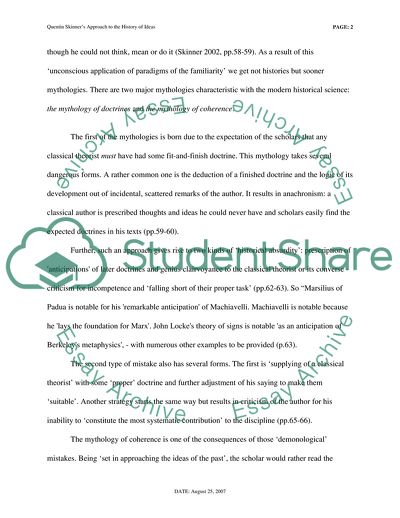Cite this document
(Quentin Skinners Approach to the History of Ideas Assignment, n.d.)
Quentin Skinners Approach to the History of Ideas Assignment. https://studentshare.org/history/1708933-outline-quentin-skinners-approach-to-the-history-of-ideas-in-particular-the-priority-he-attaches-to-context-assess-the-value-of-skinners-approach-using-e
Quentin Skinners Approach to the History of Ideas Assignment. https://studentshare.org/history/1708933-outline-quentin-skinners-approach-to-the-history-of-ideas-in-particular-the-priority-he-attaches-to-context-assess-the-value-of-skinners-approach-using-e
(Quentin Skinners Approach to the History of Ideas Assignment)
Quentin Skinners Approach to the History of Ideas Assignment. https://studentshare.org/history/1708933-outline-quentin-skinners-approach-to-the-history-of-ideas-in-particular-the-priority-he-attaches-to-context-assess-the-value-of-skinners-approach-using-e.
Quentin Skinners Approach to the History of Ideas Assignment. https://studentshare.org/history/1708933-outline-quentin-skinners-approach-to-the-history-of-ideas-in-particular-the-priority-he-attaches-to-context-assess-the-value-of-skinners-approach-using-e.
“Quentin Skinners Approach to the History of Ideas Assignment”. https://studentshare.org/history/1708933-outline-quentin-skinners-approach-to-the-history-of-ideas-in-particular-the-priority-he-attaches-to-context-assess-the-value-of-skinners-approach-using-e.


